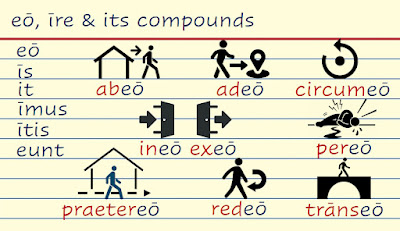A technique used in language teaching is sentence building. It’s particularly effective when, for example, working with non-native speakers of English (or any other foreign language) and designed to encourage the student to expand on what (s)he is saying so that they use a wider range of vocabulary and / or reinforce certain structures. Here’s an example used with younger students.
[What do you drink at
breakfast time?]
> coffee [pretty standard
one-word response]
[What do you drink at
breakfast time?]
> I drink coffee.
[Do you drink a
glass of coffee?]
> I drink a cup
of coffee.
[Hot or cold?]
> I drink a cup of hot coffee.
[Do you drink coffee every
day? Is it a small cup? Do you like milk
and sugar?]
> I usually have
a big cup of hot coffee with milk but I
don’t like sugar.
Those kinds of stimulus
questions in brackets push a youngster further. But, as an IELTS trainer, I
still use that basic technique even with very advanced, but sometimes shy or
uncertain students so that they can express their opinion. That same building
method is used in essay writing; if the essay title is “Do you think smoking
should be banned in public places?”, and the student is staring at a blank
piece of A4, you need to start at the “shallow end” with simple questions on
the topic upon which you build and elicit more detailed response.
In developing confidence in,
here, case endings, don’t jump in at the “deep end” because the deep end is
Cicero, Virgil, Ovid, Horace etc. Just start with some elementary concepts. The
examples below illustrate use of two cases – accusative and genitive - working
together in the same sentence. A technique similar to the “coffee” question
above is being used.
(1) [i] amphora [ii] vīnum;
[i] amphora [ii] wine
> [i] amphora
[nominative] ¦ [ii] vīnī [genitive]
- an amphora ¦ of wine
> Vinārius ¦ [i] amphoram [accusative]
¦ [ii] vīnī [genitive] vēndit.
- The wine-merchant is
selling ¦ an amphora ¦ of wine.
+ optimus, -a, -um: very
good; (the) best
> vinum optimum: very
good wine
> Vinārius [i] amphoram ¦
[ii] vīnī optimī vēndit.
- The wine-merchant is
selling ¦ an amphora ¦ of very good wine.
> Vinārius ¦ [i] amphorās ¦
[ii] vīnī optimī vēndit.
- The wine-merchant sells
¦ amphoras ¦ of very good wine.
+ multi, -ae, -a: many
> Hic vinārius ¦ [i] multās amphorās ¦
[ii] vīnī optimī vēndit.
- This wine-merchant
sells many amphoras ¦ of very good wine.
(2) [i] situla [ii] aqua;
[i] bucket [ii] water
> [i] situla ¦ [ii] aquae
- a bucket of water
> Ancilla ¦ [i] situlam ¦
[ii] aquae portat.
- The maid-servant is
carrying ¦ a bucket ¦ of water
+ frīgida, -a, -um: cold
> aqua frīgida: cold
water
> Ancilla ¦ [i] situlam ¦
[ii] aquae frīgidae portat.
- The maidservant is
carrying a bucket of cold water.
+ duo [masc.], duae [fem.],
duo [neut.]
> Servus ancillaque [ī]
duās situlās [iī] aquae frīgidae portant.
- The slave and
slave-girl are carrying two buckets of cold water.
Below are some sample
sentences. How would you translate them? What cases are being used and how are
they working together? The vocabulary is either listed immediately below, or in
the image posted.
- afferō, afferre [irr.]
bring
- dēfessus, -a, -um:
tired; exhausted
- merus, -a, -um: pure;
undiluted (of wine)
- oleum: oil; olive oil
[1] Agricola ¦ cum corbulā ¦
ūvārum ¦ venit.
[2] Agricola ¦ cum corbulā ¦
ūvārum nigrārum ¦ venit.
[3] Fēmina ¦ olīvās ¦ emit.
[4] Fēmina ¦ ōllam ¦
olīvārum ¦ emit.
[5] Fēmina Rōmāna ¦ ūnam
ōllam ¦ olīvārum ¦ in macellō ¦ emit.
[6] Ancilla ¦ urceum ¦ aquae
affert.
[7] Ancillae ¦ urceōs ¦ vīnī
optimī afferunt.
[8] Dominus ¦ vīnum ¦ bibit.
[9] Dominus ¦ pōculum ¦ vīnī
¦ bibit.
[10] Dominus ¦ pōculum ¦
vīnī merī ¦ bibit.
[11] In mēnsā ¦ sunt ¦ ōva.
[12] In mēnsā ¦ sunt ¦ multa
ōva.
[13] In mēnsā ¦ est ¦
patella ōvōrum.
[14] Servus ¦ saccum ¦
portat.
[15] Servus ¦ saccum ¦
frūmentī ¦ portat.
[16] Servī dēfessī ¦ duōs
saccōs ¦ frūmentī portant.
[17] Quantī cōnstat ¦ hoc
oleum?
[18] Tabernārius ¦ fēminae ¦ guttum ¦ oleī ¦ dat.

















